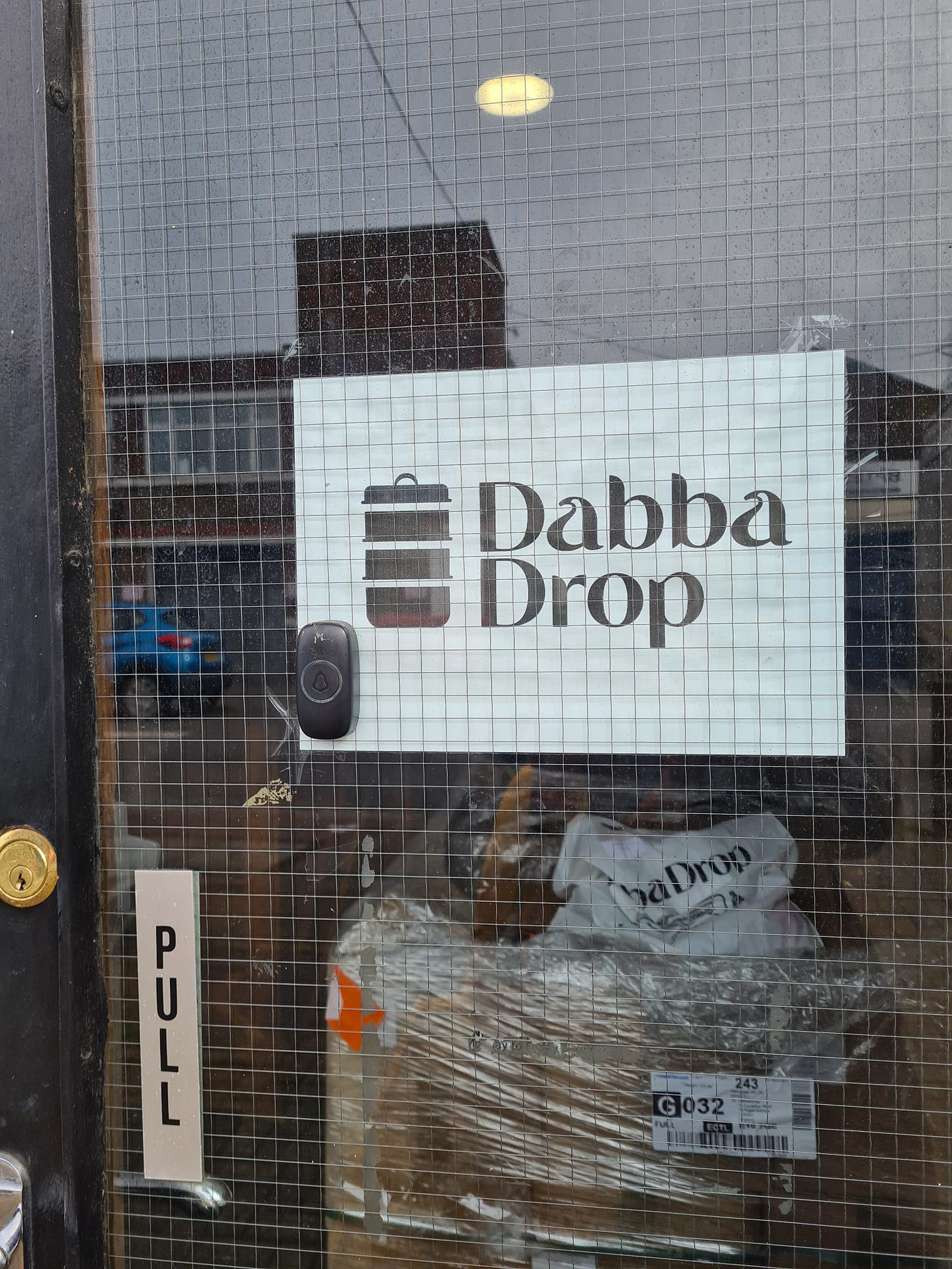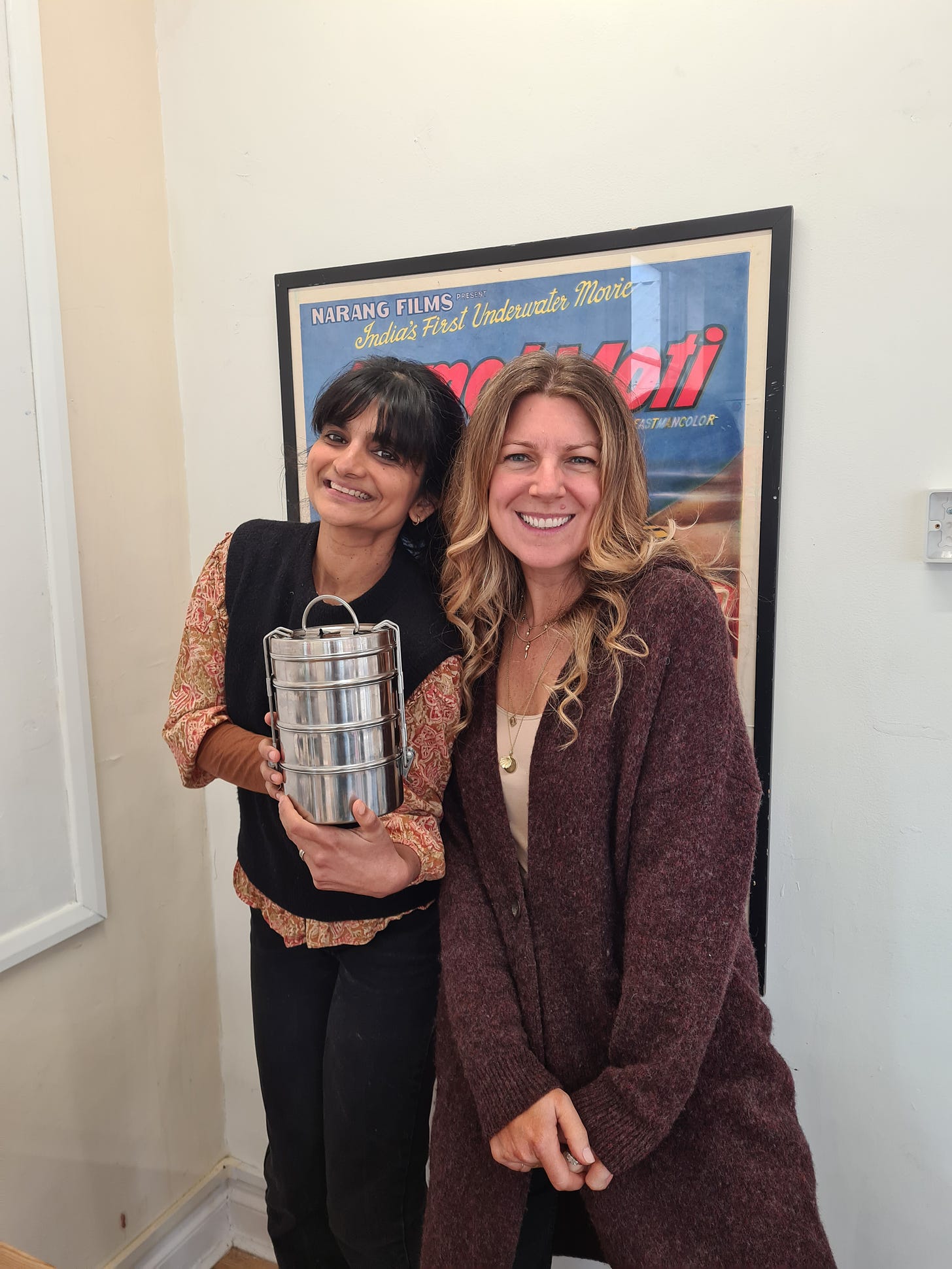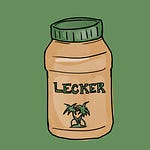Lucy: Welcome back to Out of the Box, an audio exploration of what surrounds our food. That is, the containers and packaging in which it enters our lives. In this series, I'm talking to people who have taken an interesting and innovative approach to packaging what they cook and produce, as well as exploring some of the broader context around the history of particular food packaging, as well as obviously waste, and the impact that packaging has on our environment.
Takeaways are a huge part of our food culture here in the UK. Since I was a kid, getting a pizza, or a parmo, or a chicken tikka masala and pilau rice, or sweet and sour chicken balls, or what was known locally as a family pack, that I realised later was simply an enormous kebab, has been a part of the English food in my life, as much as scones, or shepherd's pie, or gammon and pineapple.
And I want to stress that this isn't something that I think we should feel shame or guilt around, unlike how the British media sometimes seems to want us to. But the thing that does make me uncomfortable. is what's left after the takeaway has been devoured. These days, rather than the polystyrene tubs, it's often lidded plastic containers, technically reusable, though I suspect they aren't always used as such, or paper boxes and bags, but the problem is that takeaway packaging has to be durable in order to transport the food to us in good temperature and condition, and that isn't always compatible with an option that's easily biodegradable.
And often takeaway food is cheap, which is part of the appeal, and it's not seen as an option to raise the price to take into account more expensive, environmentally friendly packaging. I think part of the problem is that actually, with the volume in which takeaways are produced and distributed in this country, there's No one use packaging is entirely sustainable, and this is a thought process that led me to Dabba Drop.
I've been aware of Dabba Drop for a while, though have never actually had the chance to try their food. The company was founded in 2018 by Renee and Anshu, who wanted to offer something different on the takeaway market.
Anshu: So Dabba, quite literally, means box. And in this version, it is a tiered, stacked box, clasped together with this, with clips, essentially.
Lucy: Filled with delicious dishes, these stacked dabbas are delivered around London by pushbike, e-bike or zero emission vehicles. And the same riders and drivers collect the emptied dabbas the next time around, to return to be washed and filled again.
I met Renee and Anshu at the Dabba Drop offices in East London.
I had previously got slightly lost and found my way to the kitchen in a different industrial unit, full of friendly chefs and kitchen staff preparing the most delicious smelling things. before Anshu took me over to do the interview. They're both charming, despite having clearly a million things going on, taking time to chat and make me tea and answer the door before we settle in.
Anshu: Oh, classic. Postman. Oh, of course. Hi, are you all right? Yes, just drop it in. Sorry, I'm in the middle of an interview. Thank you!
Lucy: Anshu began by explaining the original inspiration for Dabba Drop.
Anshu: I grew up in Mumbai, which is where the Dabba Wala system, I suppose, originates. It's been going for over a century and it's sort of kept the city fed for all of this time.
In its old version, or its original version, it was your wife or your mum cooking you a home cooked meal. And getting it delivered via the double wallahs, so box and wallah means person. So the box wallah would cycle the box to your desk at work. As time went on and middle classes grew and, you know, when people started moving further and further away from the sort of central business district, that short distance kind of got longer.
So. Now, you know, someone will cook, gosh, two hours away, and then that dabbawalla has to find a way of making it to the central business district to deliver your dabba, taking a bike, then some public transport, then passing it on to somebody else who takes it another distance, and then getting on another train.
And so it's a two hour journey to deliver this fresh meal that your partner or your mum has lovingly cooked. But the idea that You know, Indians love a fresh home cooked meal. They will do anything for that service. So alongside the packaging, it was also that idea that we're going to bring love to your table and it's going to be handmade and it's going to be good for you.
So we looked at that system, you know, an ancient system and we thought, how could we bring it to London and how could we modernize it for modern day? Londoners. So I think it was 2018 when we met. We both had two kids and they were both sort of under five at that point. We lived across the road from each other, um, you know, two mums, new to it all.
We were still sort of working our old sort of corporate jobs, juggling motherhood and life and work and kind of getting together on Friday nights and sort of moaning about our, you know, juggle essentially. And how frustrating it all was and we'd sort of order a takeaway and drink some wine and, you know, want to put the world to rights basically.
And in one of those conversations, I think we sort of discussed about wanting to set up something on our own, wanting to do something for ourselves, something that had an impact and made a difference and something our kids would look at in years to come and be like, Mom, I'm so proud you did that. We're not there yet.
Lucy: I don't know. I don't know.
Renée: We used to order takeaways. It's often on those Friday nights as well and sort of, you know, talk about how disappointed we were with them and she was a vegetarian or is a vegetarian and there were never any great vegetarian options. It always arrived, it was greasy, you know, it had mystery meat in it.
If you ordered a meat version of it, it left you feeling sort of bitter. Bloated and gassy and, you know, just kind of, ugh, gross. Guilty.
Anshu: Guilty about your purchases.
Renée: And then there was always obviously the pile up of plastic, you know, packaging leftover that you, you know, you wash up and you want to reuse, but essentially it just ends up, you know, in landfill at the end of the day.
So Anshu did a trial in the summer of 2018, I think, and I think you fed sort of 20 people, friends and neighbours. I obviously lived across the road. I was one of the recipients of the first iteration of Dab a Drop and I just thought it was such a great idea. Loved the presentation, the theatrical experience, you know, when you open the tins and see what's inside, it's a bit of a surprise.
And we just, yeah, sort of jumped on board from that point and decided to give it a go, not really knowing how it would go, but sort of, putting our all in and yeah, it really sort of kicked off just from word of mouth through friends and neighbours. We've got a great, you know, school community as well who shouted about us and it was really just sort of recommendations that grew us initially.
Just organic growth. Yeah.
Lucy: And so walk me through how the process works for Dabba Drop. Like, so I've just been to the kitchen. There's like some delicious smells going on. The Dabbas are starting. How does it work for people receiving them?
Renée: So for anyone who wants to sign up, they can go on our website and they can choose between either getting a delivery every week or every fortnight.
There's one menu that's cooked every week at the moment, but soon we're looking to do have a bit of variety in the menu. So you'll be able to choose between two different menus. Then on the week of your delivery, you'll get an email and. the Cyclist time the delivery window and then it will all be delivered basically So yeah, yeah Each of our doubles has four different stacks four different tins within it The bottom one is generally rice Then we usually have a dal a vegetable curry and a sort of a more dry stir fry vegetable dish on the top and then you can choose between Samosas and various other pickles and chutneys as sides as well.
If you want to sort of pimp your Dabba up.
Anshu: Yeah. Um, so everybody eats the same thing, which is, you know, in the early days, we sort of went with that because, you know, uh, well to make it operationally easy for ourselves. But now that everyone, you know, across London, well, there's. You know, this week, for example, there's just under 2, 000 people eating with us.
They're all, everybody's eating the same thing, you know, so it is kind of quite a lovely communal feeling, you know, it's something that started in our community, but now everyone's kind of welcome around or eating with us together, you know, and Renee ate her dabba last night. I'm going to eat mine tonight.
So, you know, there's a, there's that community, which is something in modern day sort of big cities you'd lack. So we wanted to bring that back. And you know, simpler times, taking a pause from your life, sitting down, opening up your Dabba and, you know, eating together. That's where it all comes from as well.
Renée: And because we always know exactly how many people we're feeding every week, there's no food waste as well, which is obviously a really
important part of
the model.
Lucy: Yeah. Okay.
Renée: And sorry, I forgot to mention, you know, how does it work in terms of the, The Dabba being swapped out. So it's obviously a subscription model, which means that the next time you get a delivery, we'll pick up your empty tin and we'll swap it out with the, with the full one.
So it's a circle of good. And then the empty ones come back to base. We wash and sterilize them and they get prepped up for the next week's menu.
Lucy: And they go back out. Exactly. Can we talk a little bit about the packaging? Because that was kind of like what I, primarily I'm like, I was interested in because it is such an unusual model.
I mean, I guess you've had the example of, you know, the Dabba Walas in Mumbai, so I guess you've seen that happen, even though it is a slightly different, you know, that you're obviously keeping all the Dabbas centrally. But like, how was it taking, taking this on as an idea? Did you have any unforeseen challenges?
Like what were the things that came up unexpectedly?
Renée: Yeah. I mean, to be completely honest, it would be so much easier to deliver in plastic packaging. You know, it's cheaper. It's disposable. It's It has a lot of benefits. Don't get me wrong, but we didn't want to do that. We wanted to do something different
Listen to this episode with a 7-day free trial
Subscribe to Lecker to listen to this post and get 7 days of free access to the full post archives.












